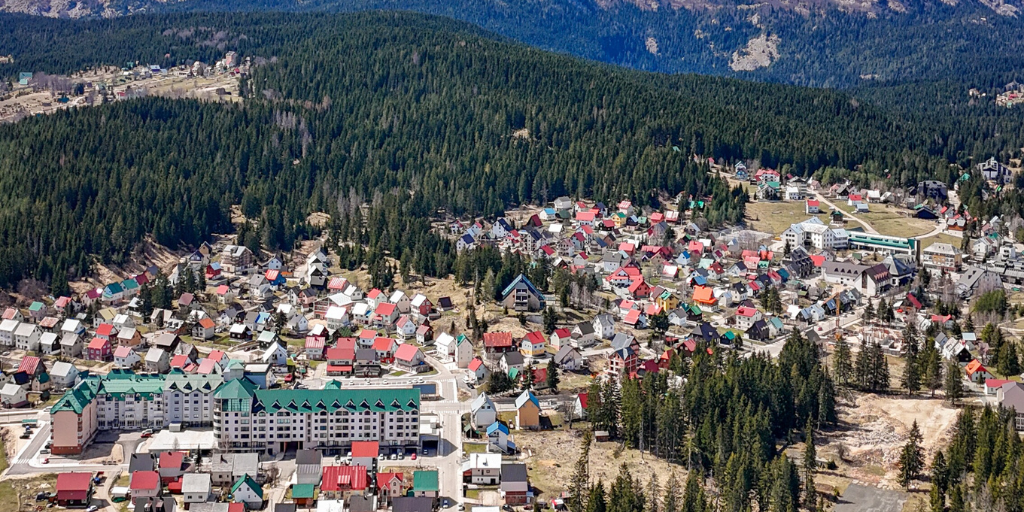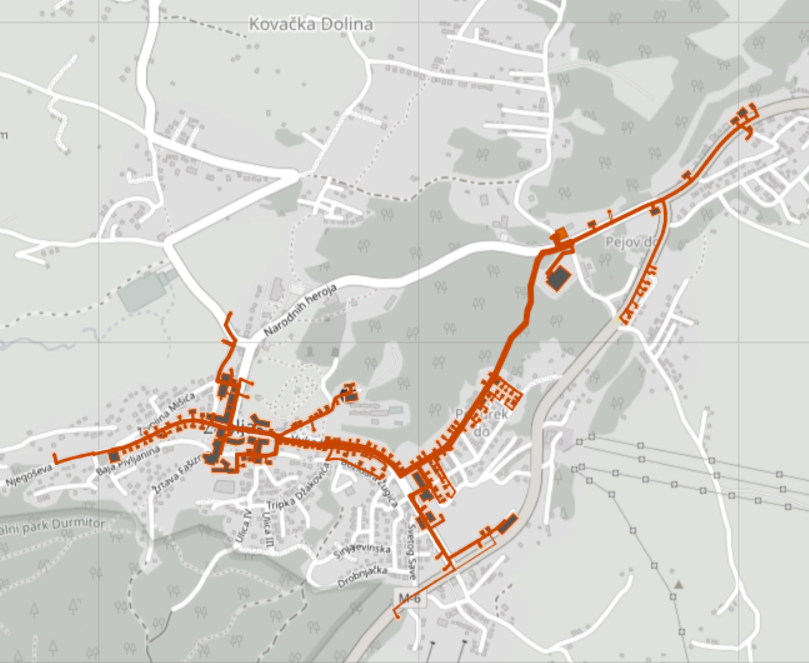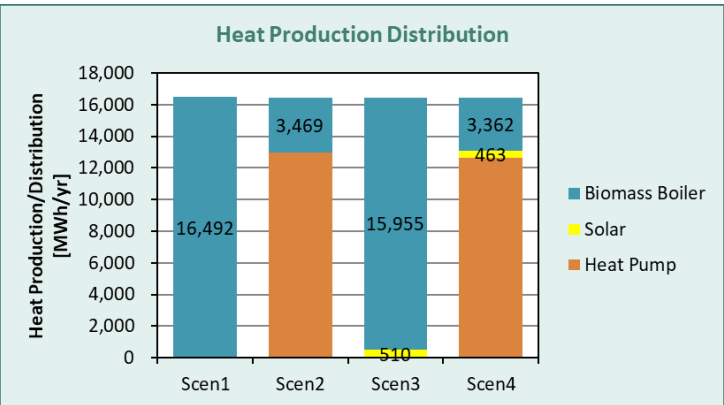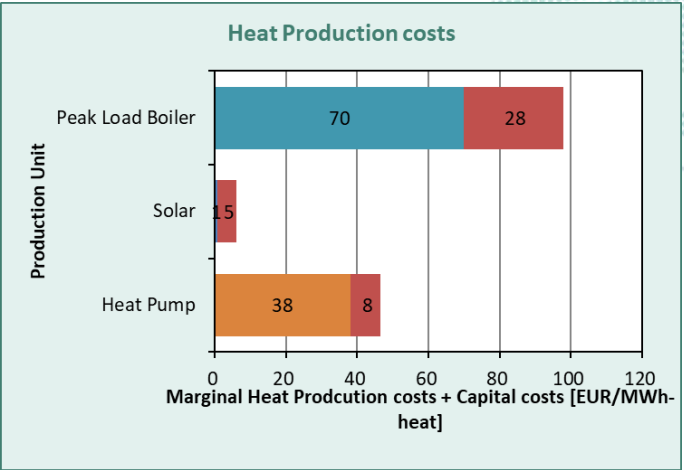Perched 1,456 metres above sea level in the Durmitor National Park in Montenegro, Žabljak, the highest urban settlement in the Western Balkans, is looking for new heating solutions. A 2020 pre-feasibility suggested biomass, but determined to avoid air pollution and deforestation, the local authorities set out to find a better way forward.
Nataša Kovačević, Heating sector decarbonisation campaigner for the Western Balkans | 11 December 2024

Copyright: digital.me
For several years now,Žabljak has been on a journey towards a more sustainable future, and has made significant strides in addressing its heating challenges. The town has long relied on firewood and coal for heating, which posed significant environmental risks – especially over the winter tourist season when demand surges nearly tenfold.
In 2020, a pre-feasibility study supported by the EBRD seemed like a promising opportunity to develop a new district heating system. However, the proposed system, based predominantly on biomass, raised concerns among local leaders, as it would strain local forests, worsen air quality, and potentially lead to unpredictable heating costs. Determined to avoid these pitfalls, Žabljak set out to find a cleaner, more efficient solution.
The vision: a hybrid heating solution
The municipal authorities began exploring greener alternatives in 2023, with the European Commission-backed Action Heat initiative and CEE Bankwatch Network providing the needed support.
With the final goal of including 157 buildings and a planned network length of 7.77 kilometres, Žabljak aimed to explore four district heating scenarios. These included combinations of air source heat pumps, solar thermal systems and biomass boilers.
After careful consideration, the municipal authorities selected a hybrid solution that maximizes the benefits of a 2 megawatt (MW) air-source heat pump as the primary heating source, complemented by a 1.25 MW biomass boiler used only during extreme cold periods when additional heating capacity is needed.

Žabljak Municipality proposed district heating network in the selected scenario 3
Network:
Capital cost (incl. Supply): 4.79 M EUR
NPV to operator: 2.73 M EUR
Operating cost: 856.85 k EUR/year
Supply:
Type: Biomass + Air Source Heat Pump (ASHP)
Capacity: 1.25 MW (Biomass) + 2 MW (ASHP)
Capital cost: 2.68 M EUR
Source: SF2: Heat network prefeasibility study for the Žabljak Municipality, CREARA and Žarko Despotović, September 2024
In addition, the municipality is also interested in integrating solar thermal and storage technologies to diversify heat energy sources, achieve higher efficiency, and reduce the biomass capacity requirements. However, this integration will be subject to a detailed technical assessment, for which the municipality aims to secure funding in the next project phase. Currently, the installation of 1,000 m², generating up to 1 MW, is being considered, but not assessed in detail.
The first phase is integrating approximately 35 public buildings and large consumers in the most densely populated urban areas. The second phase will focus on expanding the system to include both collective and individual residential properties.
Zabljak’s choice to prioritize heat pumps comes from their ability to effectively harness the ambient air for heating, even in subzero temperatures. They can efficiently scale up heating output during high-demand periods, providing reliable warmth while scaling back during quieter months to save energy and costs. This adaptability makes them an ideal solution for managing fluctuating heating needs in tourism-oriented, seasonal towns, ensuring both efficiency and sustainability year-round.

Another key reason the town prioritized heat pumps over biomass was to help protect the forests of Durmitor National Park, already under threat from illegal logging, while also maintaining better air quality for residents and visitors throughout the season.
Finally, the hybrid system’s economic feasibility played a major role in its selection. The system’s total investment is estimated at EUR 4.8 million and with a payback period of just over five years, the system is both practical and sustainable for the municipality. Heat pumps are also far more economical to operate than traditional biomass boilers, with projected annual savings exceeding EUR 400,000. These savings could allow the municipality to reinvest in other local projects, further benefiting the community.

Overcoming funding hurdles
While the technical and economic feasibility of the project is clear, Žabljak is facing challenges in securing the necessary funding. As the total investment cost has been scaled back, the investment will look less attractive, especially for big development banks such as EBRD, KfW or other high-volume lenders. Moreover, the local authorities need technical knowledge and expertise to mature the project and secure investment grants. They are actively seeking partners and investors to move the project forward. This is a common issue faced by small towns when trying to implement green energy solutions.
To address the funding gap and advance the detailed technical development of the project, in November this year, the municipal authorities held their first discussions on potential support with the Montenegrin Ministry of Energy. In mid-March 2025, they are also organizing a workshop, in partnership with Bankwatch, to bring together technical experts, policymakers, and potential funders. The workshop will focus on the specifics of the hybrid heating system and explore innovative financing strategies to accelerate the project’s realization. This collaborative approach will help build momentum and attract the support needed to bring the vision to life.
A model for mountain communities
If successful, Žabljak’s hybrid district heating solution could become a model for other mountain towns or small and mid-size towns in the region. Similar efforts are underway in towns like Kakanj and Živinice in Bosnia and Herzegovina, and Kočani in North Macedonia, where local governments are rethinking their heating systems to adopt cleaner alternatives. These initiatives are among those showing the Western Balkans’ potential to leapfrog from coal and wood-based heating to renewables-dominated systems, without the need to resort to fossil gas.
Through this initiative, Žabljak is demonstrating that innovation in energy solutions is not limited to large cities or rich countries. With the right combination of technologies, collaboration, and financial support, mountain towns can lead the way in creating cleaner, more sustainable communities for the future.
Never miss an update
We expose the risks of international public finance and bring critical updates from the ground – straight to your inbox.
Theme: District heating
Project: District heating
